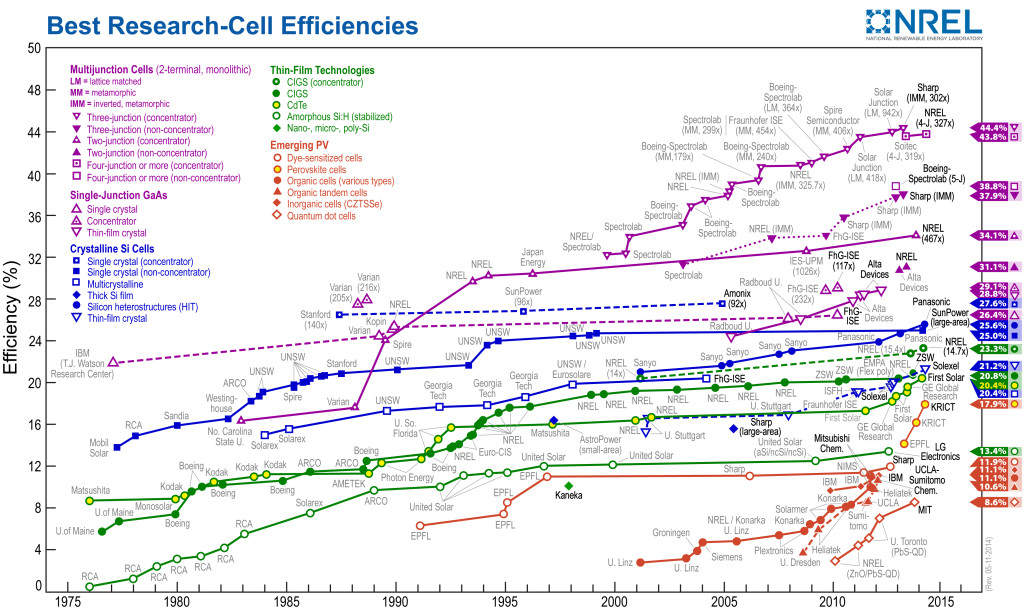
Harnessing the full potential of solar power might indeed solve the world’s ongoing energy crisis. Of course, this is much easier said than done.
Radu Sporea, an engineer at The University of Surrey, discusses the potential obstacles.
Dr. Radu Sporea is Royal Academy of Engineering Academic Research Fellow in the Advanced Technology Institute at the University of Surrey. His current research focuses on power-efficient, cost-effective large-area electronics in organic and inorganic semiconductor technologies. Additionally, Dr. Sporea enjoys traveling, podcasting, photography and public engagement in science.
Radu Sporea – Solar Efficiency
Step into your parked car one sunny afternoon and you’ll be very aware of the power of the Sun.
 We can capture solar power with semiconductors, materials also used in computer chips and digital camera sensors. Semiconductor solar cells are energy converters: when light hits them, they generate electricity.
We can capture solar power with semiconductors, materials also used in computer chips and digital camera sensors. Semiconductor solar cells are energy converters: when light hits them, they generate electricity.
The solar cell’s efficiency is the fraction of total energy which is captured. The most complex and expensive of them hitting 40%. But crucially, new technologies based on liquid processing of materials are evolving rapidly. At barely 10% efficient, these cells are many times cheaper to produce. For comparison, a 1970s car might be 10% efficient while 40% is easily achieved by cleaner and dearer, modern turbo diesels.
If you’re looking to generate solar power industrially, you can choose between efficient and cheap technologies, and, not surprisingly, there are very specific needs for both. Low-cost solar cells are ideal for places where there’s a lot of sun but not a lot of cash. Nations without a robust power distribution grid would greatly benefit from cheap local power generation. Expensive, high performance solar cells might find their use, believe it or not, in space. The earth’s atmosphere blocks out some of the sun’s energy, so taking solar panels into orbit would be like taking off their sunglasses for increased electricity output.
But when you buy a car, efficient or not, you must consider maintenance and other associated costs. A solar generator in the middle of the desert or out in space comes with a unique set of logistical issues. Certainly, they won’t be the easiest thing to fix and, for dependable energy production, reliability may trump performance.


Comments
One response to “Radu Sporea – University of Surrey – Solar Efficiency”